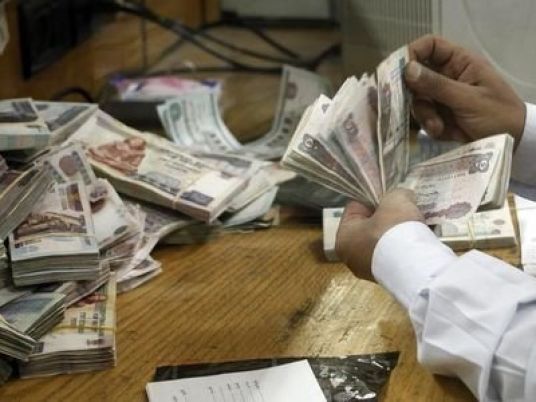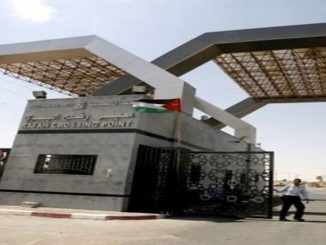
The Constitutional Court declared the unconstitutionality of Article 10 of the Protest Law on Saturday. This article would give the Ministry of Interior the right to ban protests.
3 years after Egypt’s Protest Law: 37,000 security moves and 128,881,000 in fines
Over three years since the implementation of Law No. 107 of 2013, known in the media as the “protest law”, there were 37,059 security moves and judiciary actions against people in different governorates in the period between November 25 ,2013 and September 24, 2016, according to Daftar Ahwal Initiative, an independent research center, reported Al-Marsad.
The initiative recorded bringing 15,491 defendants under the protest law to courts, where 6,382 defendants were convicted and 5,083 were acquitted. In these cases, the fines that were paid reached 128,881,000 Egyptian pounds, whether the verdicts were final or still subject to appeals.
How the Egyptian regime used the law to crack down on opposition and isolate voices of dissent
Amr Hamzawi, a senior associate, Middle East Programme, at Carnegie Endowment for International Peace, published an article in Al-Jazeera, titled, “Egypt’s anti-protest law: Legalising authoritarianism” on Feb. 24, saying, “Since the summer of 2013, following the military coup led by Abdel Fattah el-Sisi, the ruling regime in Egypt has managed to handcuff the public space, surround it with restrictions. This has been in a stark contrast to the period before the coup when Egyptians, during the popular uprising that took place on January, 25, 2011, were encouraged to engage actively in managing the country’s affairs through peaceful means and ballot boxes. This period benefited both civil society organisations and political parties. Egypt now finds itself ruled by a military, security and intelligence junta.”
Protest Law should be scruitinised
Egypt’s generals have constantly employed repressive tools to instill fear among the population in order to stifle free expression and peaceful opposition.
“The military clique’s goal here is to evacuate citizens from the public space, to eliminate the autonomy of civil society organisations and to marginalise political parties that are not controlled by the security and intelligence services. They have also continued to adapt different legislative and legal measures to crack down on opposition and isolate voices of dissent”, Hamzawi continued, adding that, “This dreaded law, known locally as the ‘protest law’, should be scrutinised because it provides the basic justification to usurp the freedom of a large number of Egyptian youths, students, workers, Muslim Brotherhood members as well as others.”
Constitutional Court annulling Interior Ministry’s right to ban protests, activists not satisfied
While the Constitutional Court’s decision on canceling the right of the Interior Ministry to ban protests has been received with praise, many activists and lawyers had hoped for bigger changes to the Protest Law. The court upheld Article 8, however, which states that protesters should notify officials prior to gathering. The court also rejected appeals on articles 7 and 19, which impose penalties on any protestor who violates the law’s terms, thus upholding their constitutionality, said Al-Awady.
Article 10 of the law had allowed the minister of interior or the concerned security director to cancel, postpone, or modify the route of a protest if they had acquired “serious information or evidence that the assembly would threaten national peace and security”.
The court had also looked into another lawsuit that called for the entire Protest Law to be deemed unconstitutional, which the court rejected.
Following the court’s decision, the law now stipulates that protesters can arrange a demonstration if they notify the Ministry of Interior, although the ministry no longer reserves the right to ban protests. Prior to the court’s decision, requests for protests were frequently rejected by the Interior Ministry with very few actually allowed.
Al-Awady praised the court ruling on Article 10, but added that the goal was to have the entire Protest Law declared unconstitutional. “This [ruling] was not the result I wanted to hear and it was not expected,” he said.
Al-Awady also said that despite ruling Article 10 unconstitutional, security forces will continue to harass and arrest protestors as long as articles 7 and 19 are still enforced.
The main reason behind the appeals filed against the Protest Law was not tied to granting people the right to freedom of expression through protest, but rather to protect them from being arrested or accused of a crime. This was not achieved in the court’s ruling.
Article 7 states that individuals participating in protests are not allowed to harm state security, hinder public or state interests, or prevent public transportation or the work of state institutions.
Individuals who commit any of the aforementioned crimes would be punished according to Article 19 of the law, which stipulates prison sentences for between one or two years that should not exceed five years, as well as a minimum fine of EGP 50,000 that should not exceed EGP 100,000.
Commenting on whether the court’s declaration will benefit detainees in protesting cases, Al-Awady said that this will not do anything for those previously detained for protesting. The only way such detainees could benefit from decisions on the Protest Law would be if the court amends or annuls articles 7 and 19.
Al-Awady said that dozens of young people have been arrested from protests on charges of vandalism based on articles 7 and 19 of the Protest Law.
While the court’s decision dimmed hopes among human rights activists and legal experts for releasing detainees imprisoned under the law, a number of politicians saw the ruling as a positive step that could open the door to discussion on further amendments to the law.
The Constitutional Court’s decision on the Protest Law will result in parliament being more committed to intensifying its discussion on potential amendments to the law, which will be guided by the reasoning of the court’s ruling, said Tarek Al-Khouly, a member of parliament and member of its Foreign Affairs Committee, following the court ruling.
Member of the National Council for Human Rights (NCHR) George Ishak praised the court’s ruling during a press conference held in the Egyptian Social Democratic party headquarters.
Ishak depicted the court’s decision as a ”historic ruling” that supports the people’s right to protest, adding that it is a good beginning for further amending the law. He noted that NCHR has prepared around 11 comments on the law, and will forward them to parliament.
The NCHR member said that he would hope that parliament does not deal with the Protest Law the same way they dealt with the recently passed NGO Law, as such actions would lead to another uprising similar to the 25 January Revolution.
MP Gamal El-Sherif, a member of the 25-30 Alliance, said that the Human Rights Committee is already preparing amendments on the law that will soon be discussed in parliament.
MP Haitham El-Hariri said that there is no relation between the Protest Law and the status of detainees imprisoned in protesting cases.
El-Hariri, who is also a member of the 25-30 Alliance, said that there are other articles that should be amended in the law, such as articles limiting the number of protesters and the protest location. He explained that if the number of protesters in a demonstration increases beyond what is written in the documents submitted to the Ministry of Interior, there would be room for punishment.
The Protest Law was issued in late November 2013 by interim president Adly Mansour. The legislation was drafted to regulate public assembly. The law requires that organisers of any public assembly, be it a protest, march, or general meeting, submit a written notice to the nearest police station with their plans at least three working days in advance
The Protest Law has been condemned by multiple international and local NGOs, as it is alleged that thousands have been detained for protesting and are currently serving harsh prison sentences.
Human Rights Watch reported in February that there are 22,000 people, including activists and journalists, have been arrested since July 2014 for stating their opposition to the government.
However, according to a 2015 report by Amnesty International, over 41,000 people were arrested, indicted, or sentenced as part of the government’s suppression of political opponents and activists since the 25 January Revolution.



